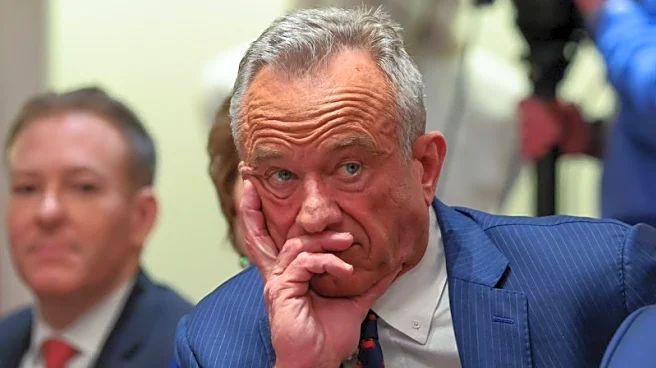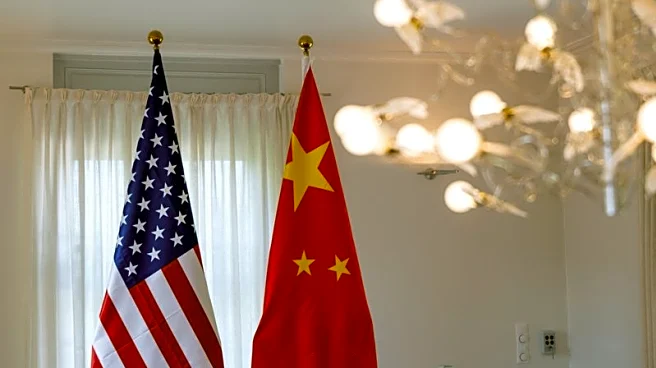What's Happening?
Julia Roberts' film 'After the Hunt' premiered at the Venice Film Festival, receiving a six-minute ovation. Directed by Luca Guadagnino, the film features Roberts as a professor dealing with accusations against a colleague. The film has sparked controversy due to its themes related to cancel culture and the #MeToo movement. Roberts defended the film, emphasizing its role in provoking conversation rather than making statements. The film also stars Andrew Garfield and Ayo Edebiri, with supporting roles from Michael Stuhlbarg and Chloë Sevigny. The script was written by Nora Garrett, marking her feature screenwriting debut.
Why It's Important?
The film's reception at Venice highlights its potential impact on discussions surrounding cancel culture and the #MeToo movement. By challenging audiences to engage in conversation, 'After the Hunt' may influence public discourse on these topics. The film's exploration of complex themes and its emotional impact on viewers underscore its significance in the current cultural landscape. As a high-profile project featuring major stars, the film's success at Venice could bolster its visibility and influence in the film industry.
What's Next?
Following its Venice premiere, 'After the Hunt' is set to release in theaters in New York and Los Angeles on October 10, with a wider release on October 17. The film's themes may continue to spark debate and discussion among audiences and critics, potentially influencing its reception and impact. As the film gains traction, reactions from various stakeholders, including feminist groups and academic institutions, could shape its influence on public discourse.
Beyond the Headlines
The film's portrayal of complex interpersonal dynamics and its focus on the art of conversation highlight broader societal concerns about communication and understanding. By not advocating a specific point of view, the film encourages viewers to reflect on their beliefs and engage in meaningful dialogue. This approach may resonate with audiences seeking nuanced portrayals of contemporary issues, potentially influencing future cinematic explorations of similar themes.









